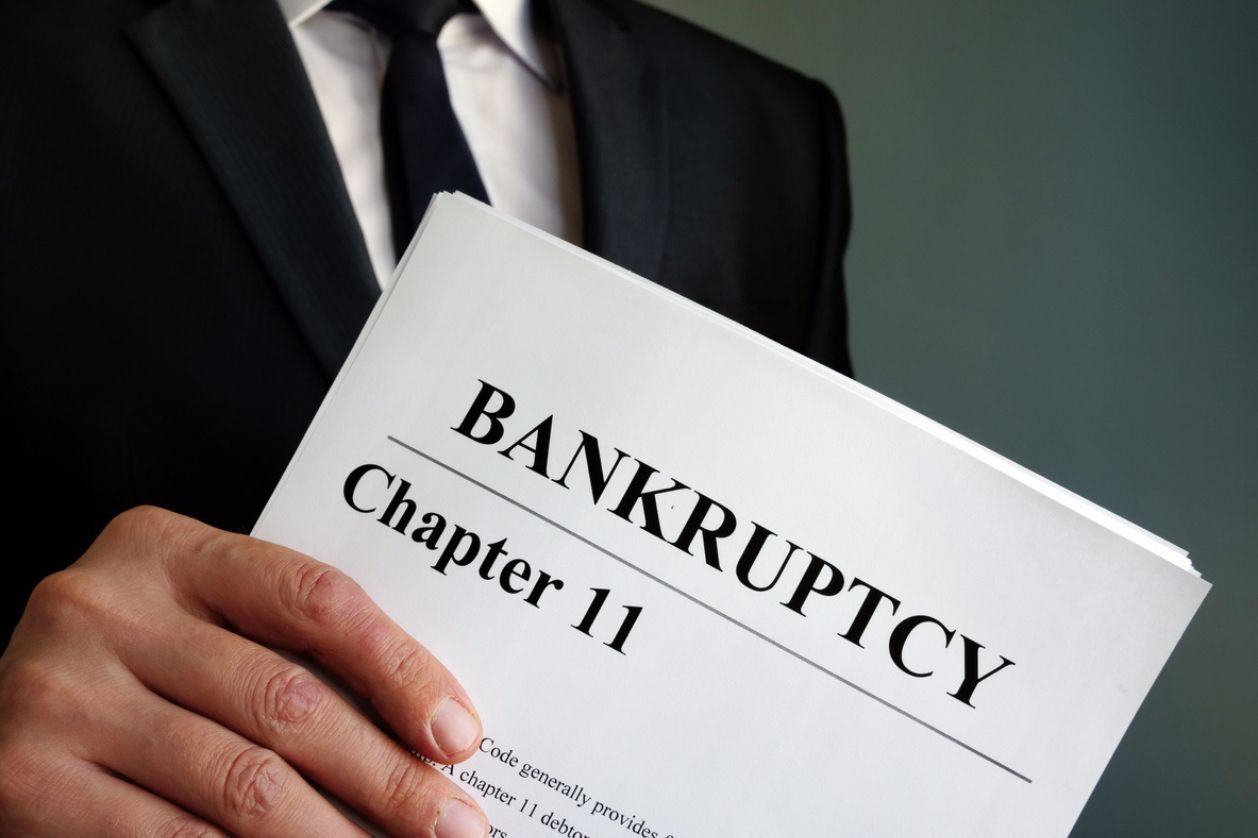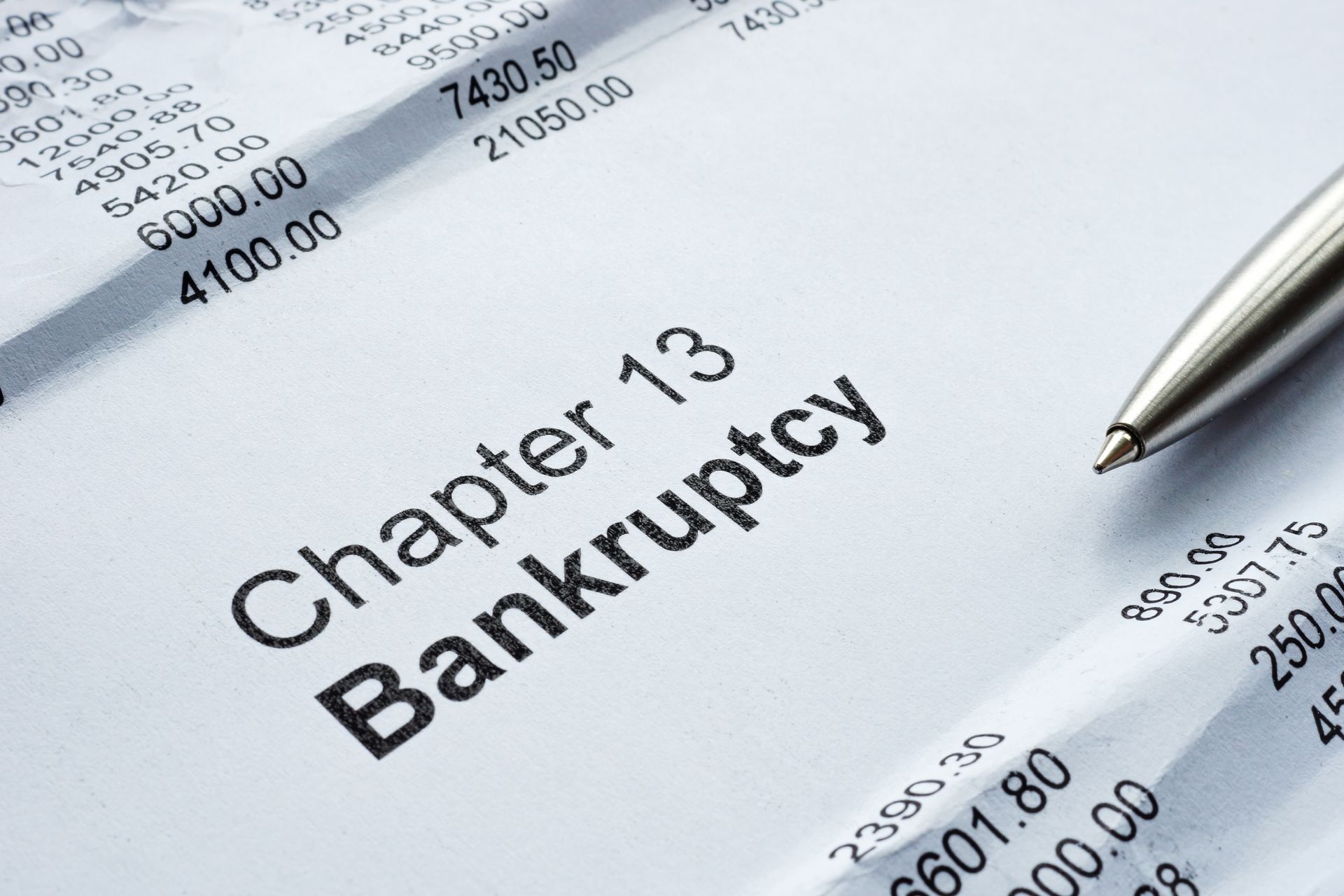How to find the Best Chapter 11 Bankruptcy Lawyer
Find the Best Chapter 11 Bankruptcy Lawyer: Your Essential Guide

Chapter 11 bankruptcy is a form of bankruptcy in the United States that allows a business to reorganize its debts and operations while continuing to operate. Large corporations and businesses generally use it, though it is also available to individuals.
Filing Chapter 11 Bankruptcy
The key features of Chapter 11 bankruptcy include:
- Automatic stay: Filing for Chapter 11 triggers an automatic stay that stops most collection actions against the debtor, giving the business time to reorganize.
- Debtor-in-possession: In most cases, the business's existing management remains in control as the "debtor-in-possession" during the bankruptcy process.
- Reorganization plan: The debtor must propose a reorganization plan that lays out how it will restructure and pay off its debts over time, often involving concessions from creditors.
- Creditors' Committee: An official committee of the business's largest unsecured creditors is appointed to represent their interests in the bankruptcy process.
- Disclosure statement: The debtor must file a disclosure statement that provides detailed information about the company's finances and the reorganization plan.
- Confirmation of plan: The reorganization plan must be approved, or "confirmed," by the bankruptcy court before it can take effect. This requires meeting specific legal requirements.
The goal of Chapter 11 bankruptcy is to allow the business to restructure its debts and operations to emerge from bankruptcy as a viable, going concern. The process can be complex and lengthy, often taking months or even years.
Experience Trumps All
Having an experienced Chapter 11 bankruptcy lawyer is crucial for a few key reasons:
- Navigating the complex legal process—Chapter 11 bankruptcy has many intricate legal requirements and procedures that must be properly followed. An experienced attorney understands the nuances of the law and can help guide the business through the process efficiently.
- Developing an effective reorganization strategy—The reorganization plan is the centerpiece of a Chapter 11 case. An experienced lawyer can help the business craft an approach with the best chance of being approved by the court and satisfying creditors.
- Protecting the business's interests—Chapter 11 involves balancing the needs of the business, its creditors, and other stakeholders. An experienced lawyer can advocate for the business's interests and protect it from unfavorable outcomes.
- Dealing with creditors and the bankruptcy court—Lawyers who specialize in Chapter 11 have established relationships and credibility with bankruptcy judges and know how to negotiate effectively with creditors.
- Avoiding missteps that could derail the process—Small errors or oversights in a Chapter 11 case can have major consequences. An experienced lawyer can help the business avoid potential pitfalls.
- Maximizing the chances of a successful reorganization—With their expertise, a skilled Chapter 11 attorney can significantly improve the odds of the business emerging from bankruptcy as a viable, going concern.
The complexities of Chapter 11 bankruptcy make having an experienced lawyer an essential component of successfully navigating the process. Their knowledge and advocacy can make all the difference.
Choosing The Right Chapter 11 Bankruptcy lawyer
Having the right experienced Chapter 11 bankruptcy lawyer can make a massive difference in the success of a business's reorganization case. Here are some ways an exceptional attorney can positively impact the outcome:
- Developing an effective reorganization plan: An experienced lawyer will know how to craft a plan that has the best chance of being approved by the bankruptcy court. They understand the legal requirements and can structure the plan to satisfy creditors.
- Negotiating with creditors: Chapter 11 bankruptcy requires delicate negotiations with numerous creditors. A skilled attorney has established relationships and credibility, allowing them to broker compromises that work for the business.
- Protecting the business's interests: Navigating the competing interests of the business, creditors, and other stakeholders requires an advocate to protect the company's position fiercely. An experienced lawyer can ensure the business's needs are prioritized.
- Optimizing the timing and strategy: Knowing when to take specific actions, how to sequence events, and what battles to fight can differentiate between a successful reorganization and a failure. Seasoned attorneys have this strategic expertise.
- Avoiding missteps: The legal process is rife with potential pitfalls. An experienced lawyer can identify and help the business avoid mistakes that could derail the entire case.
- Leveraging technical knowledge: Bankruptcy laws are highly complex. A skilled attorney understands the nuances of the code and can utilize technical legal maneuvers to the business's advantage.
- Providing valuable guidance: Throughout the lengthy and stressful Chapter 11 bankruptcy process, the business's management team needs the steady hand and wise counsel of a trusted legal advisor who has "been there, done that."
The difference an exceptional Chapter 11 bankruptcy lawyer can make is immense. Their expertise, strategic thinking, and relentless advocacy can be critical factors in determining whether a business successfully reorganizes or is forced into liquidation. The right attorney is an invaluable asset.
The Role of a Chapter 11 Bankruptcy Lawyer
The role of a Chapter 11 bankruptcy lawyer is multi-faceted and critical to the success of a business's reorganization efforts. Here are the essential responsibilities and functions of an experienced Chapter 11 attorney:
- Filing the bankruptcy petition and initiating the process
- Preparing and filing the Chapter 11 petition with the bankruptcy court
- Ensuring all required schedules, statements, and other documents are correctly submitted
- Advising on the debtor-in-possession (DIP) role
- Guiding the business on its duties and responsibilities as the DIP
- Ensuring the DIP fulfills its fiduciary duties to creditors
- Developing the reorganization plan and disclosure statement
- Crafting a feasible and confirmable plan of reorganization
- Preparing the detailed disclosure statement to be provided to creditors
- Negotiating with creditors and other stakeholders
- Facilitating discussions and compromises with the creditors' committee
- Balancing the interests of the business, secured creditors, unsecured creditors, and other parties
- Representing the business in bankruptcy court proceedings
- Presenting the reorganization plan and disclosure statement for court approval
- Arguing motions, objections, and other legal matters before the bankruptcy judge
- Providing strategic guidance and problem-solving
- Advising the business on the optimal timing and sequencing of actions
- Identifying and mitigating potential legal risks and challenges
- Ensuring compliance with bankruptcy laws and procedures
- Maintaining strict adherence to bankruptcy code requirements
- Protecting the business from potential dismissal or conversion of the case
- Facilitating the implementation of the reorganization plan
- Overseeing the execution of the approved plan
- Assisting with post-confirmation matters and the business's emergence from bankruptcy
The expertise and advocacy of an experienced Chapter 11 bankruptcy lawyer are essential for navigating the complex legal process and maximizing the chances of a successful business reorganization. Their role is truly pivotal in determining the outcome.
Qualities To Look For In A Chapter 11 Bankruptcy Lawyer
When seeking a Chapter 11 bankruptcy lawyer, there are several vital qualities and qualifications to look for:
1. Specialized Expertise
- The lawyer should have extensive experience handling Chapter 11 cases specifically.
- They should demonstrate a deep understanding of the unique laws, procedures, and strategies involved.
2. Proven Track Record
- Look for a lawyer with a history of successfully guiding businesses through Chapter 11 reorganizations.
- Ask about their past cases and the outcomes they achieved for clients.
3. Strong Negotiation Skills
- Chapter 11 bankruptcy requires skillful negotiations with creditors and other stakeholders.
- The lawyer should have a reputation for being an effective negotiator and compromiser.
4. Thorough Understanding of Business Operations
- The lawyer should have a solid grasp of the client's industry and business model.
- This allows them to develop reorganization plans that are tailored and practical.
5. Excellent Communication and Interpersonal Abilities
- The lawyer must effectively communicate complex legal matters to the client.
- They should also exhibit relationship-building solid skills with creditors and the court.
6. Analytical and Strategic Thinking
- The lawyer should demonstrate the ability to analyze the client's situation from multiple angles.
- They should provide well-reasoned, strategic advice to navigate the Chapter 11 process.
7. Responsiveness and Accessibility
- The lawyer should be responsive to the client's questions and concerns.
- They should make themselves readily available throughout the lengthy bankruptcy proceedings.
8. Integrity and Ethical Standards
- The lawyer should have an unblemished reputation for honesty and ethical conduct.
- They should strictly adhere to all applicable laws and professional standards.
Identifying a Chapter 11 bankruptcy lawyer with specialized expertise, a proven track record, and positive personal qualities is crucial for businesses seeking the best chance of a successful reorganization. The proper legal counsel can make all the difference.
How to Find the Right Chapter 11 Bankruptcy Lawyer
Here are some tips for finding the right Chapter 11 bankruptcy lawyer:
- Ask for Referrals:
- Talk to your business contacts, financial advisors, and other professionals for referrals to experienced Chapter 11 attorneys.
- Trusted referrals can be a great way to identify qualified lawyers.
- Research Bankruptcy Law Firms:
- Look for law firms specializing in bankruptcy and restructuring, especially those focusing on Chapter 11 cases.
- Review their websites, client testimonials, and case histories to assess their qualifications.
- Check for Relevant Experience:
- Ensure the lawyer has significant experience handling Chapter 11 bankruptcy cases, preferably similar to your business.
- Ask about the types of Chapter 11 bankruptcy cases they have successfully navigated.
- Evaluate Their Credentials:
- Look for lawyers board-certified in business bankruptcy law or other relevant certifications.
- Check their standing with the state bar association and any disciplinary records.
- Schedule Consultations:
- Meet with several potential lawyers to understand their approach, communication style, and overall fit.
- Use the consultation to assess their knowledge, responsiveness, and ability to understand your unique situation.
- Consider Cost and Billing Practices:
- Understand the lawyer's fee structure and billing practices upfront.
- Ensure their fees are reasonable and align with the value they can provide.
- Assess Their Team and Resources:
- Inquire about the support staff and other professionals the lawyer can draw upon.
- Larger firms may have more depth and resources to handle complex Chapter 11 cases.
- Trust Your Instincts:
- Select the lawyer you feel most comfortable working with and confident in their ability to handle your case.
- A good working relationship and mutual trust are essential in a Chapter 11 bankruptcy.
Finding the right Chapter 11 bankruptcy lawyer requires careful research, due diligence, and an assessment of both their qualifications and your rapport. Investing the time to identify the best legal counsel can pay dividends in the success of your reorganization.
Chapter 11 Bankruptcy Preparation
Here are some tips for preparing to work effectively with a Chapter 11 bankruptcy lawyer:
- Gather Comprehensive Financial Information:
- Collect all relevant financial documents, including balance sheets, income statements, cash flow statements, and tax returns.
- Provide your lawyer with a complete picture of your business's financial situation.
- Understand Your Business Operations:
- Be prepared to thoroughly explain your business model, revenue streams, cost structure, and operational details.
- Your lawyer needs a deep understanding of how your company functions.
- Identify Key Creditors and Stakeholders:
- Make a list of your major secured and unsecured creditors and any other key stakeholders.
- Provide contact information and details about the relationships and claims.
- Outline Your Reorganization Goals:
- Clearly articulate what you hope to achieve through the Chapter 11 process - debt restructuring, operational changes, or other objectives.
- Discuss these goals with your lawyer so they can develop an effective strategy.
- Determine Your Role and Responsibilities:
- Understand that as the debtor-in-possession (DIP), you will have specific duties and obligations to fulfill.
- Work with your lawyer to ensure your preparation meets these requirements.
- Establish Clear Communication Protocols:
- Discuss how you and your lawyer will communicate throughout the process, including frequency, preferred methods, and expectations.
- Ensure you are both on the same page about reporting, decision-making, and responsiveness.
- Allocate Appropriate Resources:
- Chapter 11 bankruptcy cases can be resource-intensive, so be prepared to dedicate time, staff, and budget.
- Work with your lawyer to estimate the expected costs and ensure you have the required resources.
- Maintain Transparency and Trust:
- Be open and honest with your lawyer about your business's challenges, liabilities, and past missteps.
- This transparency will allow your lawyer to provide the most effective counsel.
You can create a productive and collaborative working relationship with your Chapter 11 bankruptcy lawyer by proactively gathering information, outlining goals, and establishing clear communication. This preparation will significantly enhance the chances of a successful reorganization.
Common Pitfalls to Avoid When Filing for Chapter 11 bankruptcy
When filing for Chapter 11 bankruptcy, there are several common pitfalls that businesses should be aware of and actively work to avoid. Here are some key ones:
1. Inadequate Preparation
- Failing to gather and organize all necessary financial information and documentation thoroughly
- Not having a clear understanding of the business's operations, liabilities, and reorganization goals
2. Lack of Strategic Planning
- Not developing a well-thought-out reorganization plan that addresses the root causes of the business's challenges
- Neglecting to consider the interests and potential objections of key creditors and stakeholders
3. Improper Debtor-in-Possession (DIP) Management
- Failing to fulfill the DIP's fiduciary duties and maintain proper operating controls
- Mishandling critical aspects like cash management, reporting, and compliance with DIP financing terms
4. Ineffective Creditor Negotiations
- Not engaging in meaningful dialogue and compromise efforts with creditors
- Antagonizing or alienating creditors, leading to more excellent resistance to the reorganization plan
5. Missed Deadlines and Procedural Missteps
- Failing to adhere to the strict timelines and filing requirements of the bankruptcy process
- Errors or omissions in the initial bankruptcy petition and supporting documents
6. Inadequate Funding and Resource Allocation
- Underestimating the financial and human resources required to navigate the Chapter 11 process
- Not securing sufficient DIP financing or other funding to sustain operations during reorganization
7. Insufficient Communication and Transparency
- Lack of clear and regular communication with creditors, employees, and other stakeholders
- Failing to provide the bankruptcy court with complete and accurate information
8. Overconfidence or Unrealistic Expectations
- Underestimating the complexity and challenges involved in a successful Chapter 11 reorganization
- Unrealistic projections or an overly optimistic view of the business's ability to emerge from bankruptcy
Avoiding these common pitfalls requires thorough preparation, strategic planning, effective stakeholder management, and the guidance of experienced legal counsel. Proactively identifying and mitigating these risks can significantly enhance the chances of a successful Chapter 11 reorganization.
In conclusion, having an experienced and skilled Chapter 11 bankruptcy lawyer is crucial for businesses seeking to navigate the complex Chapter 11 bankruptcy process successfully. The key reasons why an exceptional Chapter 11 lawyer is so important include:
- Navigating the Intricate Legal Requirements: Chapter 11 bankruptcy has numerous detailed rules, procedures, and deadlines that must be followed correctly. An experienced lawyer provides the expertise to guide the business through this complex legal landscape.
- Developing an Effective Reorganization Plan: Crafting a feasible and confirmable reorganization plan is the cornerstone of a successful Chapter 11 bankruptcy case. Lawyers have the financial and legal acumen to structure a strategy with the best chance of court approval.
- Advocating for the Business's Interests: Chapter 11 requires balancing the needs of the business, creditors, and other stakeholders. A skilled lawyer can effectively advocate for the company's position and protect it from unfavorable outcomes.
- Negotiating with Creditors: Reaching compromises and concessions from creditors is essential in Chapter 11. Lawyers with established relationships and credibility can broker these critical negotiations.
- Avoiding Missteps that Could Derail the Process: The complexities of bankruptcy law make minor errors potentially disastrous. Experienced lawyers can help the business avoid potential pitfalls.
- Maximizing the Chances of a Successful Reorganization: With their expertise and strategic guidance, the right Chapter 11 bankruptcy lawyer can significantly improve the odds of the business emerging from bankruptcy as a viable, going concern.
Finding the appropriate Chapter 11 bankruptcy lawyer involves evaluating their specialized expertise, proven track record, negotiation skills, business acumen, communication abilities, and ethical standards. Preparing thoroughly and avoiding common pitfalls is crucial for working effectively with legal counsel.
Ultimately, the role of an exceptional Chapter 11 bankruptcy lawyer is pivotal in determining the outcome of a business's reorganization efforts. Their knowledge, advocacy, and strategic guidance can make all the difference between a successful restructuring and a failed bankruptcy.
At J. Singer Law Group, our dedicated bankruptcy law team provides invaluable guidance throughout the Chapter 11 process. We will first help you evaluate whether Chapter 11 bankruptcy is the right strategic option for your business. Our expertise in bankruptcy law and procedures will ensure you understand the full implications and requirements. Once you decide to move forward, our chapter 11 bankruptcy lawyers will stay by your side every step of the way. We'll develop an effective reorganization plan, negotiate with creditors, represent your interests in court, and help you navigate the complexities of the bankruptcy process.











